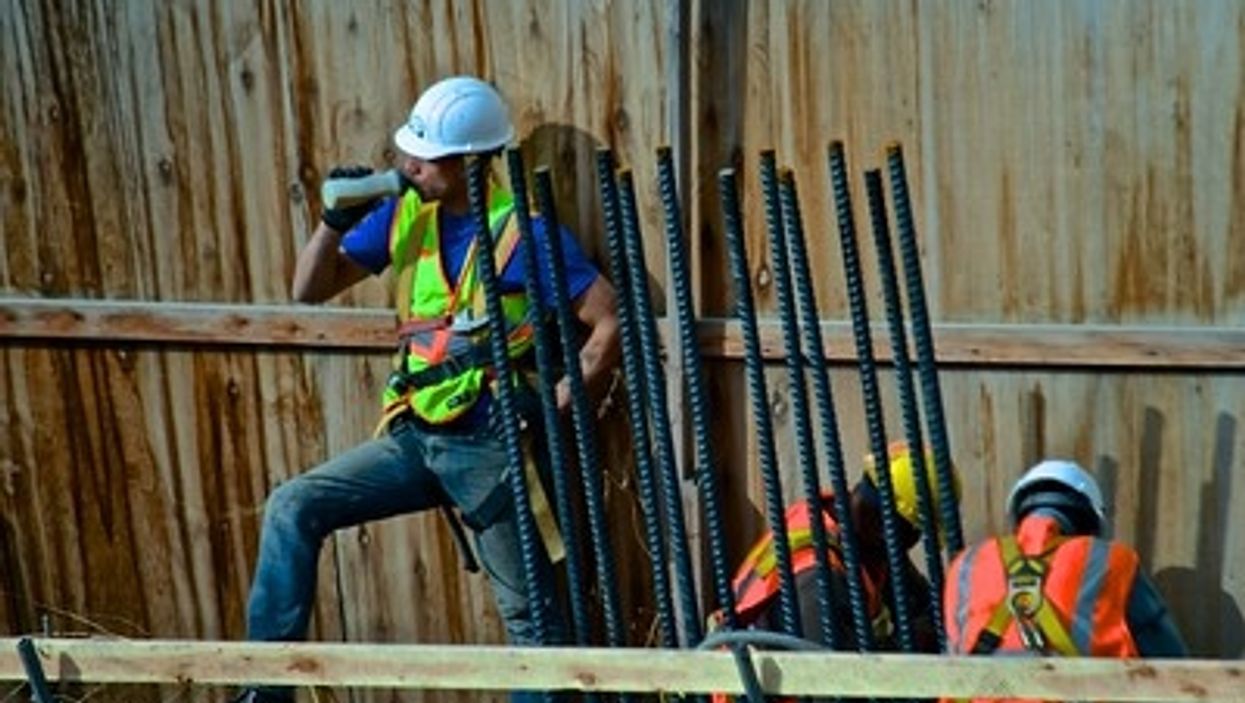Biden Orders Only US-Made Steel For Infrastructure Projects
The Biden administration announced on Monday that construction projects funded under the Infrastructure Investment and Jobs Act will be required to use American-made steel and iron.
A memo issued by Office of Management and Budget Director Shalanda D. Young "for heads of executive departments and agencies" says that "none of the funds made available for a Federal financial assistance program for infrastructure, including each deficient program, may be obligated for a project unless all of the iron, steel, manufactured products, and construction materials used in the project are produced in the United States. ... This means all manufacturing processes, from the initial melting stage through the application of coatings, occurred in the United States."
The infrastructure bill was signed into law by President Joe Biden on November 15, 2021, after passing in Congress with all Democrats voting in favor of it and a majority of Republicans opposing its passage.
The American Iron and Steel Institute, an association of North American steel producers, has estimated that five million metric tons of steel will be needed for every $100 billion of direct infrastructure spending in the legislation. Based on the $550 billion allocated in the final bill, that amounts to an estimated 27.5 million metric tons of steel that would need to be manufactured in the United States.
"Passing this bill today provides a tremendous boost to our industry," Kevin Dempsey, president and CEO of the institute, said in a statement.
Infrastructure construction projects include bridge repairs across the country, as well as road construction and repair and the installation of broadband infrastructure.
Biden's direction to use steel produced in the United States could have a positive environmental impact.
Multiple studies, including one backed by the BlueGreen Alliance Foundation and ClimateWorks Foundation and another from the Climate Leadership Council, have determined that the production of steel in America is more carbon efficient than in other countries.
Both studies found that carbon output from China's production of steel notably exceeded that of American production.
American steel production companies Nucor and U.S. Steel recently announced initiatives they said were aimed at achieved "net zero carbon" goals.
In that same vein, the Biden administration has previously announced its intention to work with the European Union toward policies that limit the use of "dirty steel" from China.
"American-made steel and aluminum is produced with far fewer emissions than dirtier alternatives made in the PRC and elsewhere. To date, American steel companies and workers have received no benefit for their low-carbon production. Low-carbon steel across all production types —and the workers who make it—will be incentivized and rewarded going forward," the administration announced in an October 2021 statement. It also highlighted the value of "green steel production," which it said would ensure "a competitive U.S. steel industry for decades to come."
The United Steelworkers, the union that represents 1.2 million active and retired workers in multiple industries, praised the original passage of the infrastructure bill in November 2021, noting, "Robust investment, coupled with strong domestic procurement provisions, will help American workers, including hundreds of thousands of USW members, not only by making their communities safer but by promoting widespread job growth and economic opportunity.
"Our members stand ready to produce the essential building blocks of a modern infrastructure, as we begin making long-overdue upgrades to the nation's roads, bridges, broadband, public transit, ports, power grids, and more."
Published with permission of The American Independent Foundation.




